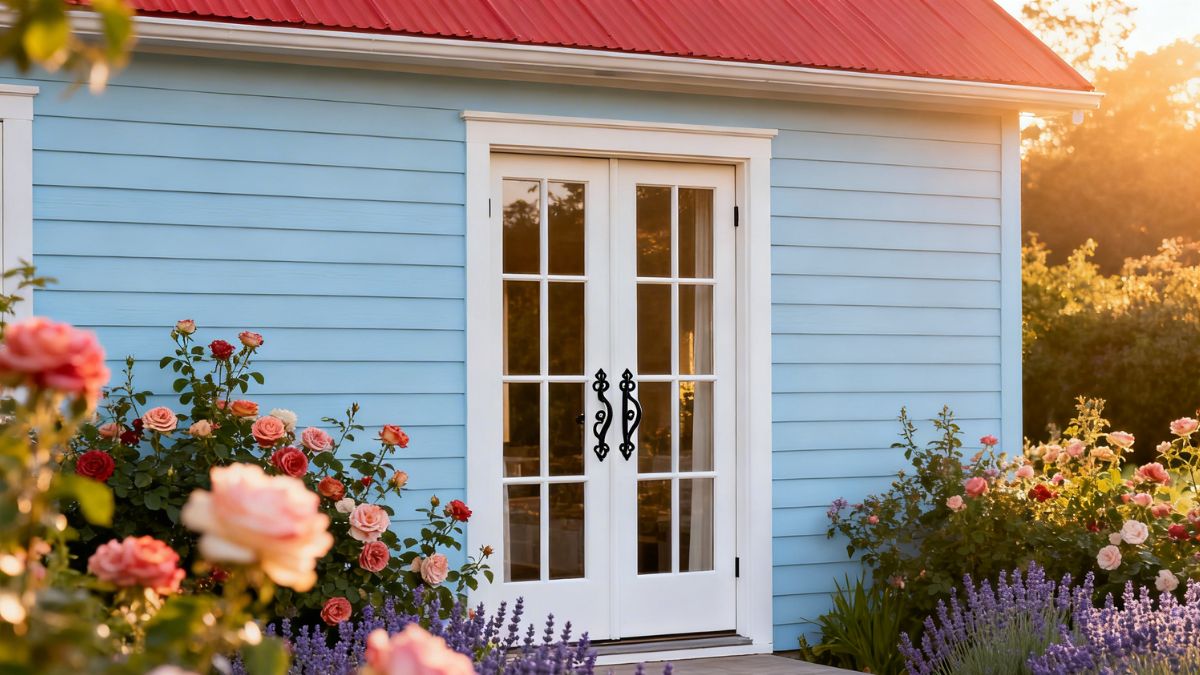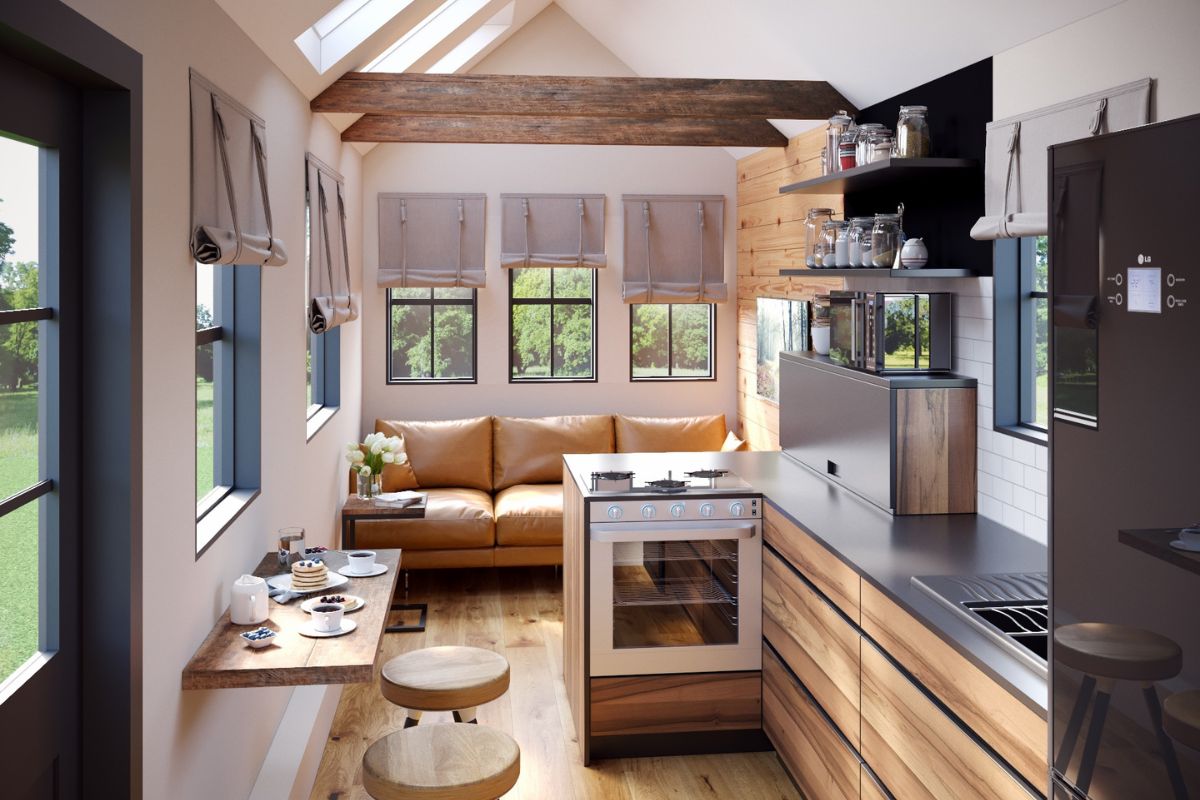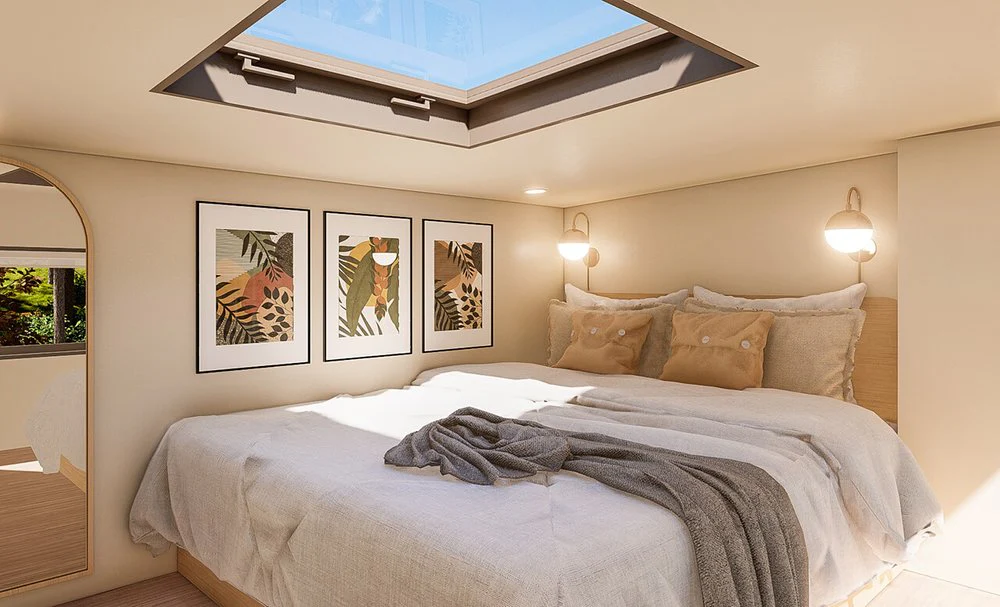7 Advantages of Off Grid Living

Image Source: Canva
As we explore the concept of off-grid living, we'll uncover seven compelling advantages that could potentially transform our daily lives. From achieving self-sufficiency and reducing our environmental impact, to saving money and enhancing our privacy, the benefits are indeed captivating.
1. Self-sufficiency empowers independence.
2. Off-grid living reduces environmental impact.
3. Financial freedom thrives off-grid.
4. Privacy and independence flourish.
5. Resilience grows through problem-solving.
We'll also investigate the mental and physical health benefits that come with a closer connection to nature, and the unique sense of community nurtured in off-grid living situations. Intrigued? Join us as we navigate this fascinating journey towards a more sustainable and fulfilling lifestyle.
Embracing Self-Sufficiency
When we choose off-grid living, we're truly embracing self-sufficiency, learning to rely on our own skills and resources rather than depending on external systems. It's about living independently and developing a deep sense of responsibility for our own needs. This step towards self-reliance is empowering, invigorating, and deeply satisfying.
For one, we're not at the mercy of utility companies or sudden price hikes. We generate our power, harvest and purify our water, and often grow our food - we're in control. This lifestyle can promote creativity and problem-solving skills as well. If something breaks or a resource runs low, we can't just call a professional or run to the store. We're compelled to figure it out - to fix, to conserve, or to improvise.
Also, off-grid living can be more economical in the long run. Sure, the initial setup may require a certain investment, but once it's done, we're free from monthly bills. We're also less affected by economic instability or job loss. We've crafted a safety net through our self-reliance.
In essence, embracing off-grid living is embracing personal freedom, creativity, and economic resilience. The journey may be challenging, but it's undeniably rewarding.
Reducing Environmental Impact
Beyond the personal benefits of self-sufficiency, off-grid living also leads us to greatly reduce our environmental impact. By utilizing renewable resources like the sun and wind for energy, we lessen our reliance on fossil fuels, thereby decreasing greenhouse gas emissions.
Solar panels and wind turbines often come to mind when thinking about off-grid energy, but there's more to it than that. We're also talking about using less energy overall. We're making conscious decisions to use energy-efficient appliances and to do without certain energy-guzzling conveniences.
In addition, living off-grid typically involves growing our own food. This not only cuts down on the carbon emissions associated with transporting food, but it also means we're avoiding the use of harmful pesticides and fertilizers that can contaminate the soil and water.
Water conservation is another key aspect. We're using rainwater collection systems, recycling greywater, and making mindful choices about our water usage.
.jpg)
Financial Freedom and Savings
One often overlooked benefit of off-grid living is the financial freedom and savings it can provide. By disconnecting from public utilities, we're able to drastically reduce monthly bills, and in some cases, eliminate them completely. Solar panels, wind turbines, and rainwater harvesting systems may require an initial investment, but the long-term savings are substantial. We're also not subject to the unpredictable price hikes of utility companies.
Furthermore, we're likely to adopt a simpler, more frugal lifestyle. We'll become more aware of our consumption habits, leading us to use less and waste less. This level of consciousness not only benefits our wallets but the environment too! Plus, growing your own food, a common practice in off-grid living, can also represent significant savings.
Lastly, financial freedom doesn't just mean having more money in the bank. It also means freedom from the stress of living paycheck to paycheck, freedom to make choices without financial constraints, and the peace of mind that comes from being self-sufficient. So, in addition to the environmental benefits, off-grid living may just be the key to a richer, fuller life.
Enhanced Privacy and Independence
Living off-grid also offers an unparalleled level of privacy and independence that's hard to match in conventional living situations. We're not constantly under the watchful eye of neighbors, nor do we've to adhere to strict community rules or homeowners' association guidelines. We're free to live our lives as we see fit, free from prying eyes and unnecessary regulations.
Being off-grid means that we're not dependent on public utilities. We generate our own power, collect our own water, and manage our own waste. This provides us with a level of self-reliance and autonomy that's hard to find in the grid-connected world. We're not at the mercy of utility companies and we're not affected by power outages or water shortages. We control our own environment and we're the masters of our own destiny.
Moreover, we're not tied to a specific location. We can live where we want, how we want. We're not bound by the constraints of urban living or the demands of a 9-to-5 job. We can make our own rules, set our own schedules, and live our lives according to our own values and priorities. That's the ultimate expression of privacy and independence.
Building Resilience and Problem-Solving Skills
In the process of off-grid living, we're constantly nurturing our resilience and problem-solving skills. This lifestyle, devoid of many modern conveniences, pushes us to figure out reliable solutions to everyday problems, ranging from generating power to managing waste.
Without ready-made solutions at our fingertips, we're compelled to think outside the box, to innovate, and to adapt. This, in turn, sharpens our problem-solving skills and develops resilience. We become more adept at handling unexpected situations, and we learn not to panic when things don't go according to plan. The confidence that comes from successfully overcoming these challenges can't be underestimated.
Off-grid living also encourages a sense of self-reliance. We can't rely on others to solve our problems for us; we've to take responsibility for our needs and come up with our own solutions. This promotes independence and self-sufficiency, traits that are invaluable in any aspect of life.
In this way, off-grid living isn't just about escaping the hustle and bustle of city life. It's about developing resilience, honing problem-solving skills, and cultivating a sense of self-reliance that can serve us well in any circumstance.
Health Benefits of Natural Living
Beyond the tangible skills and resilience we develop, embracing off-grid living also offers profound health benefits tied to a more natural lifestyle. To begin with, our bodies benefit from the physical activity inherent in a self-sufficient lifestyle. We're no longer sedentary, sitting in front of screens for hours.
Instead, we're active, working with our hands, moving, bending, stretching, and lifting. This activity doesn't just strengthen our muscles; it also enhances our cardiovascular health and improves our metabolism.
In addition to the increased physical activity, we're also nourishing our bodies with fresh, organic food. We're growing our own vegetables, raising our own meat, and foraging for food, which means we know exactly what's going into what we're eating. There are no hidden chemicals, preservatives, or additives. These changes result in improved digestion, higher energy levels, and better mental clarity.
Community and Simplicity of Off-Grid Lifestyle
Not only do our bodies and minds thrive with this lifestyle, but there's also a unique sense of community and simplicity that comes with off-grid living. This lifestyle encourages us to connect with our neighbors, share resources, and help each other out. We're not isolated, but rather, we're part of a tight-knit community, where everyone knows and supports one another.
Living off-grid doesn't mean giving up on modern comforts. Instead, it's learning to appreciate the simple things in life. We spend our days engaging with nature, growing our own food, and using renewable energy. We're not tied down by the constant need to earn and spend, but we're free to live our lives at our own pace and according to our own values.
The simplicity of this lifestyle also helps us reduce our carbon footprint and live more sustainably. We're not just living for ourselves, but also for the future generations. It's a fulfilling and rewarding way to live, and we believe it's worth considering for anyone wanting a more peaceful, community-focused, and sustainable lifestyle.
Conclusion
In choosing off-grid living, we're embracing self-sufficiency, reducing our carbon footprint, and enjoying financial freedom. We're enhancing our privacy, sharpening our problem-solving skills, and reaping the health benefits of a natural lifestyle.
Plus, we're building stronger communities and enjoying a simpler life. So, let's celebrate these advantages and continue to promote this sustainable, fulfilling way of life. After all, off-grid living isn't just a choice, it's a commitment to a better future.







.jpg)

